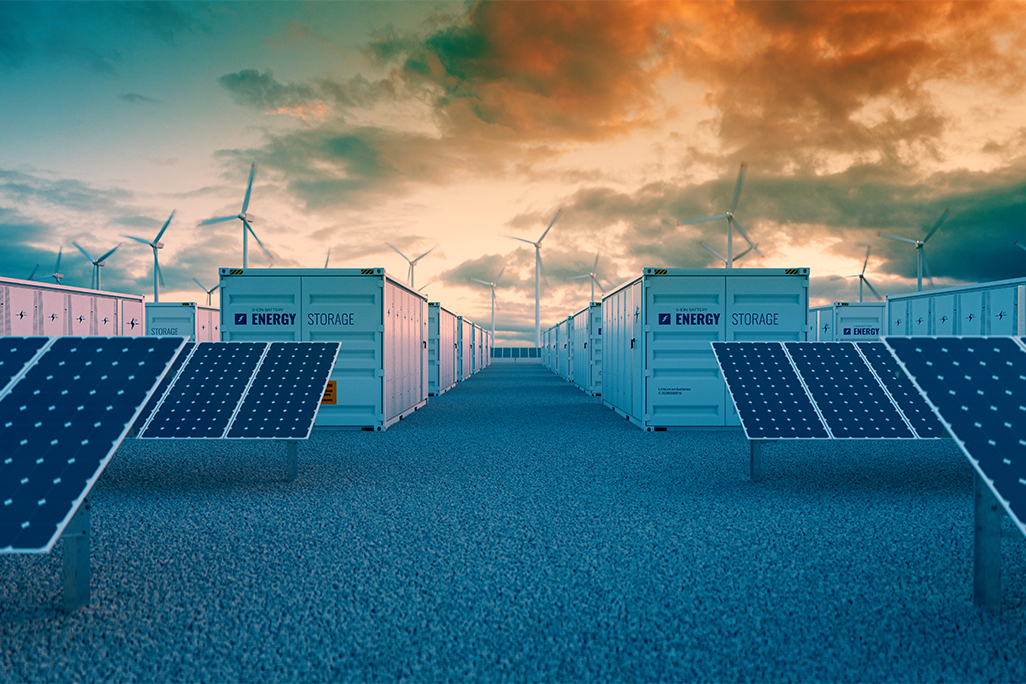The Energy Transition | Labour removes de facto ban on onshore wind
Published on 9th July 2024
Welcome to our top picks of the latest energy regulatory and market developments in the UK's transition to net zero

This week we look at some of the energy policies of the new Labour government, the growth in renewable and low-carbon electricity generation across the EU, the development of new standardised net zero metrics by BSI to be launched at COP30, and more.
Onshore wind ban lifted under new Labour government's clean energy policy
Following the success of the Labour Party in the general election last Thursday, the new government has begun to implement its plan to "make Britain a clean energy superpower". Labour's manifesto outlined its mission to provide a decarbonised power system in the UK by 2030 by doubling onshore wind, tripling solar power, and quadrupling offshore wind during this period.
As part of this, the government has already announced that it will immediately lift the de facto ban on onshore wind in England, which has been in place since 2015. In her first speech as chancellor of the exchequer on 8 July, Rachel Reeves called the previous ban "absurd". She outlined plans for the government to consult on bringing onshore wind back into the Nationally Significant Infrastructure Project regime, which would see decisions on new onshore wind farms being made at a national level, rather than a local one.
Under further plans set out in its manifesto to drive investment in clean energy production in the UK, the government intends to create publicly-owned Great British Energy (GB Energy). It plans to provide GB Energy with £8.3 billion in investment over the next five years and the company will, alongside private firms, own, manage and operate clean power projects.
Additionally, the government plans to:
- mandate FTSE100 firms and regulated financial institutions to produce credible net zero transition plans;
- provide backing for nuclear power stations; and
- ensure a phased and responsible transition in the North Sea.
These policies are intended to enhance energy security and expand the availability of clean, low-cost electricity.
For a more detailed analysis of the Labour Party's objectives for UK energy policy, see our previous Insight.
Renewable energy contributes more than 50% of EU power generation in first half of 2024
Renewables comprised over half of all power generation in the EU in the first six months of this year, according to recent analysis from Eurelectric.
The electricity trade association has published data showing that renewables made up 50.5% of EU electricity production in the first half of 2024, with nuclear comprising a further 23.5%. This brings the total contribution of low-carbon energy sources to 74% in that period. Such contribution marks a notable increase compared to the 68% share for low-carbon sources in the first half of 2023, as shown by Eurelectric's data. The increase highlights the continued decarbonisation of Europe's power supply and is a result of a sustained influx of renewables onto the grid.
Speaking about the results, the Secretary General of Eurelectric, Kristian Ruby, commented that “the pace of change is impressive. These figures document that the decarbonisation efforts of electricity companies are years ahead of any other sector”.
Independently verifiable international standard on net zero to launch at COP30
During the recent London Climate Week, the British Standards Institution (BSI) officially launched the development of a new, independently verifiable international standard on net zero. The new standard will be converted from the current ISO Net Zero Guidelines and aims to produce a best practice guide for organisations to create comprehensive net zero strategies. The BSI aims to publish the standard in November 2025 at COP30.
The development of this new standard follows research conducted by the BSI and University of Oxford, which found that whilst there is increasing convergence in key areas of net zero, significant gaps remain. In introducing the new standard, the BSI seeks to clarify what credible net zero action looks like, improve public confidence, and counter greenwashing through guidance and the potential to verify the credibility of claims.
The BSI, alongside Colombia’s National Standards Body, ICONTEC, will oversee the development process of the new standard. This will involve input from experts representing national standards bodies from over 170 countries and a public consultation which is expected in 2025.
Susan Taylor Martin, the BSI's Chief Executive, said; "This important collaboration, with BSI bringing together national standards bodies and their experts from around the world, represents a landmark opportunity to bring clarity, credibility, and trust to the net zero process and ultimately to help accelerate our common progress towards a sustainable world."
Roberto Montoya, CEO of ICONTEC, said; "We are conscious that achieving net zero requires a collaborative, ambitious, and urgent effort, so we invite all countries to participate in the process and, together, establish the requirements that will serve as the basis for implementing credible, transparent, and verifiable actions to achieve net zero."
Ofgem launches new energy price cap level for July to September 2024
Ofgem has introduced a new gas and electricity energy price cap for the period from 1 July to 30 September 2024. The cap sets the maximum price that energy suppliers can charge domestic customers for each unit of energy and accompanying standing charge, and is set by the regulator on a quarterly basis. The cap will affect around 28 million customers who are on standard variable tariffs.
Compared to the price cap set for 1 April to 30 June 2024, Ofgem estimates that the 'typical household' paying via direct debit will see its annual gas and electricity bill drop from £1,690 to £1,568 per year, an annual saving of around 7%. Under the new cap, prices for default tariff customers will be capped at 5.48 pence per kWh for gas and 22.36 pence per kWh for electricity.
However, research group Cornwall Analysis has published forecasts predicting that any benefit will likely be reversed in the next energy price cap period of 1 October to 31 December 2024, where the annual bill for a typical dual fuel household is expected to increase to £1,723.
Dr Craig Lowrey, Principal Consultant at research group Cornwall Insight said: "The drop in forecasts for October are positive, but we need to keep this in perspective. We are still facing an average 10% increase in bills from October, and as winter approaches this will put a strain on many household finances".
The government has recognised the cost of energy to UK households is a key challenge that will need to be addressed. Prior to its recent general election victory, Labour announced its plans to deliver a reduction in average household energy bills by £300 a year, as part of its pledged creation of GB Energy (the new state-owned green energy company).
This article was written with the assistance of Khushal Thobhani, Luke Hopper, Hannah Bradley, Jessica Sawford and Charlotte D'Arcy, trainee solicitors




